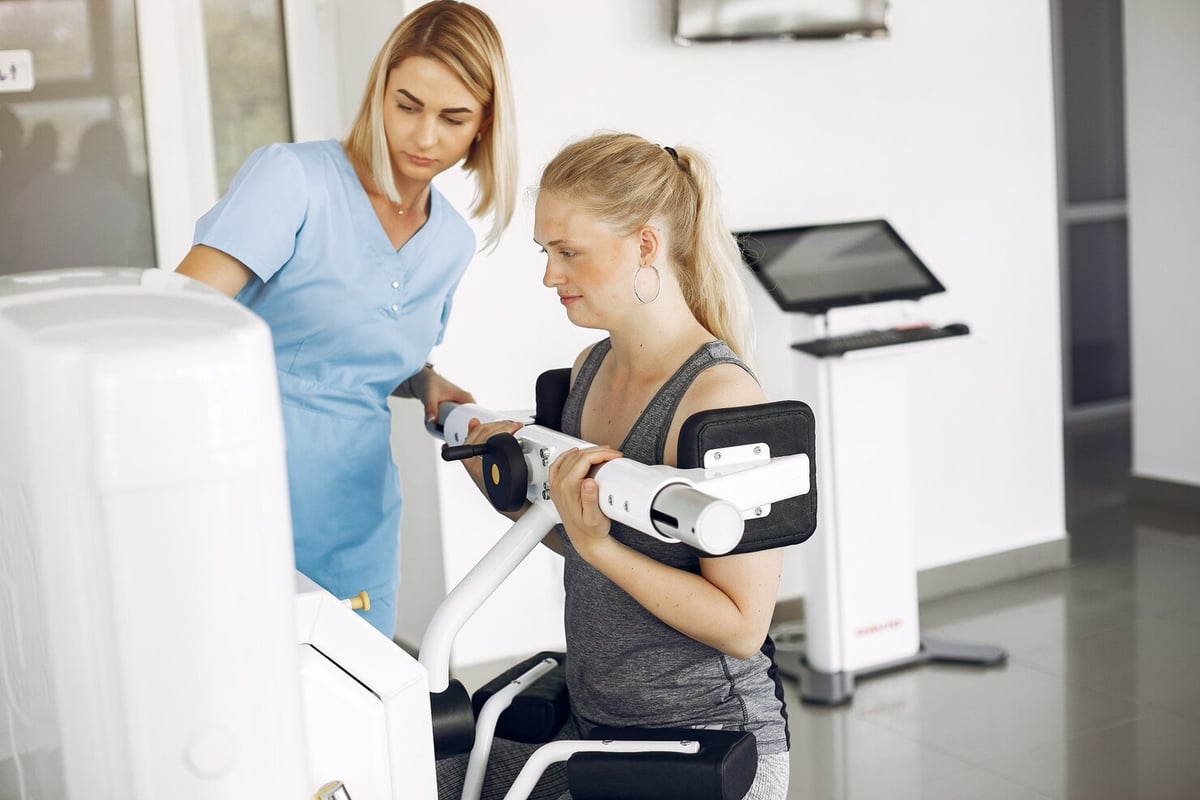How to Become a Physical Therapy Technician in Iowa

What is a Physical Therapy Technician?
Physical Therapy Technicians, also known as Physical Therapy Aides, are healthcare professionals who assist Physical Therapists in providing care to patients. Their primary responsibilities include setting up equipment, preparing treatment areas, and providing basic patient care under the supervision of a licensed Physical Therapist.
Article continues after recommendations
Recommended for you
Where Does a Physical Therapy Technician Work?
Physical Therapy Technicians typically work in various healthcare settings, such as hospitals, outpatient clinics, nursing homes, and rehabilitation centers. They play a vital role in supporting the Physical Therapist and ensuring a smooth and efficient treatment process for patients.
How to Become a Physical Therapy Technician in Iowa?
To become a Physical Therapy Technician in Iowa, one must first complete the necessary education, typically an associate's degree program. Next, they must obtain the required certification, which involves passing an exam. Once certified, they can search for job opportunities in physical therapy clinics, hospitals, or other healthcare settings to start earning a competitive salary.
What are the Requirements to Become a Physical Therapy Technician in Iowa?
To become a Physical Therapy Technician in Iowa, you typically need a high school diploma or equivalent. While there are no formal educational requirements, many employers prefer candidates who have completed a vocational training program or have prior experience in a healthcare setting.
Where Can I Find Physical Therapy Technician Classes in Iowa?
Dreambound, the largest platform for students to find and compare vocational training programs, offers a wide range of Physical Therapy Technician classes in Iowa. You can visit their website to explore the available options and find the program that best suits your needs.
Exploring a Career in Physical Therapy Technician Outside Iowa
If you're aiming to pursue a career as a Physical Therapy Technician but find yourself in a different state, remember, your goal is still within reach. You can explore opportunities to start your career as a Physical Therapy Technician in places like Alaska, Michigan, Montana, South Carolina, or Wyoming. If these locations don't work for you, Dreambound simplifies the journey to becoming a Physical Therapy Technician no matter where you live. By enabling you to find and compare Physical Therapy Technician classes with a quick zip code search, Dreambound empowers you to move forward confidently toward a rewarding career in healthcare, regardless of your current location.
Get courses selected just for you
Try our powerful search engine
Article continues after recommendations
More recommendations for you
How Do I Get My Physical Therapy Technician Certification?
While certification is not required to work as a Physical Therapy Technician in Iowa, obtaining a certification can enhance your job prospects and demonstrate your commitment to the field. You can explore various certification options, such as the Certified Physical Therapy Technician (CPTT) or the Certified Rehabilitation Aide (CRA) certification.
How Do I Get a Job as a Physical Therapy Technician?
To secure a job as a Physical Therapy Technician in Iowa, you can start by networking with healthcare professionals, searching for job postings on job boards, and reaching out to local healthcare facilities directly. Highlighting your relevant skills, experience, and any certifications you have earned can make you a more competitive candidate.
Career Paths and Opportunities after Becoming a Physical Therapy Technician
As a Physical Therapy Technician, you may have the opportunity to advance your career by pursuing additional education or training, such as becoming a Physical Therapist Assistant or a Physical Therapist. Additionally, you can explore specialized roles, such as working in a sports medicine clinic or a pediatric rehabilitation center.
Final Thoughts
Becoming a Physical Therapy Technician in Iowa can be a rewarding and fulfilling career path. By understanding the role, the educational requirements, and the job opportunities available, you can take the first step towards a career in this dynamic healthcare field.
If you're thinking of a new career path, Dreambound offers in-depth guides to understand various job choices:

Athena is Co-founder and CEO of Dreambound.






